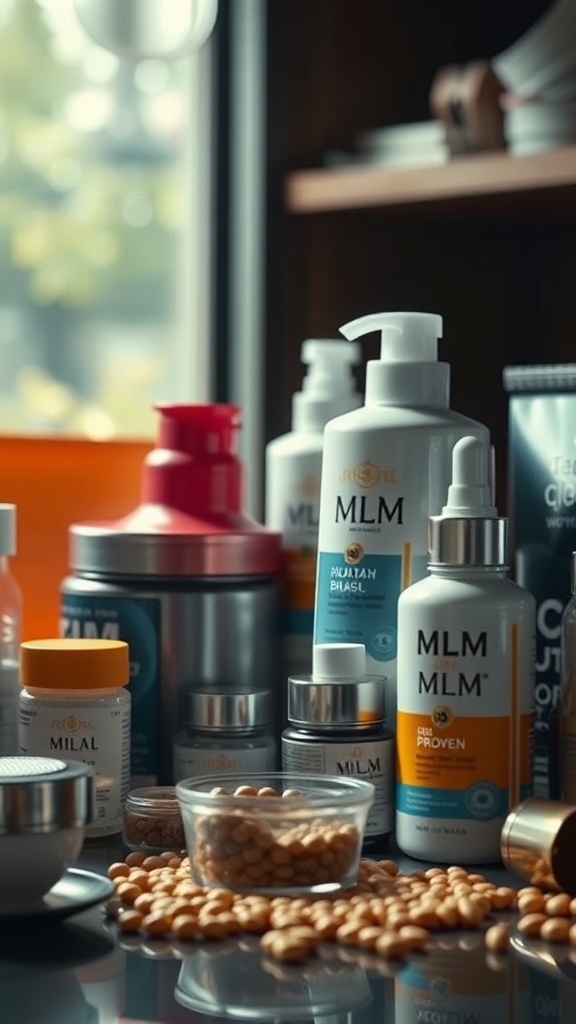MLM Products: How to Judge Quality, Value, and Trust
Multi-level marketing (MLM) products cover a wide range of categories—nutritional supplements, skincare, cosmetics, essential oils, household cleaners, and beverage mixes are common examples. Evaluating these products requires the same consumer-savvy approach you’d use for any purchase: focus on ingredients, evidence, transparency, pricing, and post-purchase support.
What to look for before buying
– Ingredient transparency: Brands that list full ingredients, concentrations, and sourcing detail demonstrate higher accountability. Avoid products that hide active ingredients behind proprietary blends without clear disclosure.
– Third-party testing: Independent lab tests for potency, purity, and contaminant screening add credibility—especially for supplements and essential oils. Look for certificates of analysis (COAs) or links to lab reports.
– Clinical evidence: Claims about health benefits should be backed by reputable studies. Check whether research exists and whether it’s peer-reviewed, product-specific, or generalized to an ingredient.
– Clear labeling and claims: Products should use accurate, non-misleading language. Beware of absolute health promises, cure claims, or vague phrases that sound too good to be true.
– Return policy and guarantees: A strong, easy-to-find return policy reduces purchase risk. Many reputable direct-sales brands offer satisfaction guarantees or money-back windows.
Pricing and value
MLM products often sell at higher retail-equivalent prices because compensation plans allocate revenue to multiple levels of distributors. That doesn’t automatically make the product poor value—some formulations and quality controls justify premium pricing—but it does make comparison shopping essential. Compare ingredient lists and unit prices with similar products available through retail or specialty stores to determine true value.

Common red flags
– Pressure selling and inventory loading: If distributors push large orders to qualify for bonuses or push you to buy recurring subscriptions without transparent benefits, take caution.
– Vague or unverifiable claims: Health miracles, guaranteed weight loss, or disease prevention claims without evidence should be treated skeptically.
– No independent reviews: If you can’t find unbiased customer reviews or third-party coverage, information asymmetry benefits the seller, not the buyer.
– Restrictive return terms: Difficulty returning or getting refunds for unused product is a warning sign.
Tips for safe purchasing
– Ask for a sample before committing to large quantities, especially for skincare and consumables.
– Verify credentials of any product that makes medical or nutritional claims—consult a qualified healthcare professional when appropriate.
– Read multiple customer reviews across platforms, looking for patterns rather than isolated opinions.
– Check company policies on shipping, returns, and subscription cancellations.
Advice for sellers
Successful sellers promote the product first and the business model second. Focus on product education, transparent pricing, and evidence-based claims. Provide clear training on compliance, avoid overstating benefits, and make it easy for customers to access COAs, ingredient lists, and return policies. Building trust with repeat buyers and authentic testimonials is more sustainable than hype-driven recruitment.
Why product quality matters
In network marketing, long-term growth depends on retention and referrals. High-quality products that deliver consistent results produce organic word-of-mouth, reduce refund requests, and create loyal customers who will recommend products without pressure. Conversely, weak products often lead to churn and reputational damage.
A practical buying mindset
Treat MLM products like any other purchase: evaluate evidence, compare prices, and prioritize transparency. Whether you’re a consumer or a seller, centering decisions on product quality and honest communication leads to better outcomes and more trust in a space where reputation matters most.